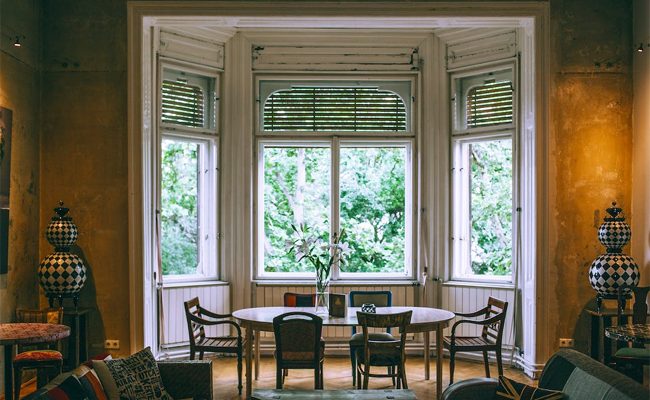
Privacy is a significant concern for many homeowners, and selecting the right type of window glass can play a crucial role in maintaining it. With various options available in the market, it can be challenging to decide which type of glass suits your needs best. In this article, we will discuss different types of window glass for privacy, their pros and cons, and factors to consider when choosing privacy glass.
Frosted Glass
Frosted glass is a popular choice for privacy as it blurs the view from both sides. It is created by sandblasting or acid etching, resulting in a translucent surface that allows light to pass through while obstructing visibility.
Pros of Frosted Glass
- Provides privacy without compromising natural light
- Easy to clean and maintain
- Available in various designs and patterns
Cons of Frosted Glass
- Limited visibility for those who prefer a clear view
- Can become scratched or damaged over time
Patterned Glass
Patterned glass is created by imprinting a design or pattern on the glass surface during the manufacturing process. The result is a decorative glass that offers privacy while allowing light to pass through.
Pros of Patterned Glass
- Wide range of patterns and designs available
- Provides privacy without sacrificing light
- Adds visual interest and character to a room
Cons of Patterned Glass
- Some patterns may be less effective at providing privacy
- Can be more challenging to clean due to the textured surface
Textured Glass
Textured glass features a pattern or texture on one or both sides, creating a unique appearance while providing privacy. Common textures include ripple, hammered, and rain.
Pros of Textured Glass
- Offers privacy and light transmission
- Enhances the aesthetic appeal of a room
- Available in various textures and designs
Cons of Textured Glass
- Maybe more difficult to clean due to the uneven surface
- Limited visibility for those who prefer a clear view
Reflective Glass
Reflective glass features a metallic coating on one side, giving it a mirror-like appearance. This type of glass not only offers privacy but also reduces heat and glare from the sun.
Pros of Reflective Glass
- Excellent privacy during daylight hours
- Reduces heat and glare, increasing energy efficiency
- Modern and sleek appearance
Cons of Reflective Glass
- Privacy diminishes at night when interior lights are on
- Can be more expensive than other glass types
Smart Glass
Smart glass, also known as switchable glass, can change its opacity with the flip of a switch or by using a remote control. It uses either electrochromic or liquid crystal technology to achieve this effect.
Pros of Smart Glass
- Offers adjustable privacy levels
- Reduces energy consumption by controlling light and heat
- Modern and innovative design
Cons of Smart Glass
- High initial cost and installation expenses
- Potential maintenance and repair issues
Stained Glass
Stained glass is created by adding colored pigments to the glass, often using lead lines to form intricate designs. This type of glass offers privacy while adding an artistic touch to a room.
Pros of Stained Glass
- Unique and visually appealing design
- Provides privacy while allowing light to pass through
- Customizable to suit individual preferences
Cons of Stained Glass
- Can be expensive, particularly for custom designs
- May not be as effective in blocking visibility as other options
Leaded Glass
Leaded glass, similar to stained glass, features lead lines that create a design or pattern on the glass surface. However, leaded glass is typically clear, offering privacy through the intricate patterns formed by the lead lines.
Pros of Leaded Glass
- Elegant and classic appearance
- Provides privacy without compromising natural light
- Can be customized to suit personal preferences
Cons of Leaded Glass
- Can be costly, especially for custom designs
- Lead lines may require periodic maintenance
Laminated Glass
Laminated glass is made by sandwiching a layer of plastic or resin between two glass panes. This type of glass offers privacy as well as increased safety and noise reduction.
Pros of Laminated Glass
- Enhanced safety due to shatter-resistant properties
- Effective noise reduction
- Can be customized with tinted or patterned interlayers for added privacy
Cons of Laminated Glass
- May be more expensive than other glass types
- The additional layers can make the glass heavier
Factors to Consider When Choosing Privacy Glass
When selecting the appropriate privacy glass for your home, consider the following factors:
- Privacy level: Determine the desired level of privacy and choose a glass type accordingly.
- Light transmission: Consider how much natural light you want to enter the room.
- Aesthetics: Choose a glass type that complements your home’s design and style.
- Maintenance: Some glass types may require more maintenance or be more difficult to clean.
- Cost: Determine your budget and compare the costs of different glass types.
Conclusion
There are various types of window glass available that offer privacy, each with its pros and cons. By considering factors such as privacy level, light transmission, aesthetics, maintenance, and cost, you can select the best privacy glass for your needs. Don’t forget to consult with a professional if you need assistance in making your decision.
Leave a Reply